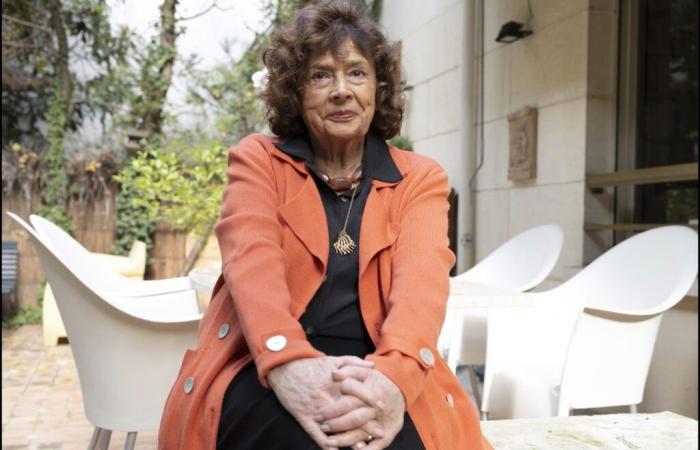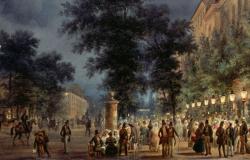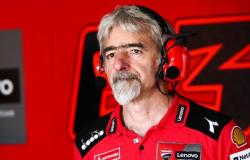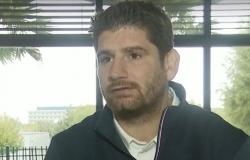“With memory you get by with everything. » In this troubled and uncertain political period, the advice of Alfred de Musset, taken from his poem “Namouna”, remains a compass. After the two volumes by Catherine Nay, the dazzling triptych by Franz-Olivier Giesbert, it is the turn of Michèle Cotta to deliver the second part of her Memoirs of the Fifth Republic, a dog-eared old lady, wrung out and in full doubt. In this journalistic epic, the former writer of “L’Express” recounts, in a clinical and refined style, “The last greats” (ed. Plon), namely François Mitterrand and Jacques Chirac. This second opus begins with this funny day of May 21, 1981: the grandiose enthronement of François Mitterrand; it ends, four hundred pages later, on April 21, 2002 with the accession to the second round of the presidential election of Jean-Marie Le Pen.
Between these two moments: the intoxication of the victory of the PS, its ideological blindness, the return to economic reality, the illusions, the denials, the dissimulations, the cohabitations, the affairs… Journalist, editor-in-chief (Radio France, TF1 ) and president of the High Authority for Audiovisual Communication, Michèle Cotta scrutinizes public life by changing points of view, but always remaining perfectly informed. And gives us the keys to understanding this eternal restart that is politics.
Excerpts
The President’s Illness, December 1981
When I enter his office, I am struck by his paleness, the parchment that his skin has become. I wonder if he wants to talk to me about the Valencia Congress and the way I interpreted it, but he begins by talking to me about the Austrian chancellor, also a socialist, Bruno Kreisky: “He is sick,” he tells me. he. Then he looks at me with his eyes, which I find almost clear, washed out, and adds: “Me too.” Ilme says that his back hurts, that he has been suffering for several months. It’s dark enough for me to understand that something is seriously wrong with him. Apparently, he only wanted to talk to me about that because, after barely a quarter of an hour, walking me to the door of his office, he said this sentence that nailed me to the ground: “When I think that for sixty -five years, I have never been sick! It’s clever!” What to answer, what to say? I leave without a word. In my car, driving along the banks of the Seine, I have tears in my eyes […]
A few days before the 9th, we come [avec le journaliste Pierre Desgraupes, NDLR] talk to Pierre Bérégovoy, who asked us, about the main points of our interview. This is what we are doing, when someone knocks on the door and enters without waiting for a response: Mitterrand appears. Still the same sallow complexion, the same hollow eyes. His voice, ironic, did not change: “You have to ask me questions about my health, right?” […] On the day of the broadcast, I begin with the question, formulated in the most banal way possible: “How are you, Mr. President?” We can’t be more neutral. He prepared his response, and no doubt at length. He responds with several successive statements. […] While I listen, I tell myself, returning to what has been running through my head, even galloping, in my head for two weeks, that it is not possible that the president is ill, really. A heatstroke, a coldstroke, perhaps something more serious, but a “malignant disease,” as he put it, doesn’t seem possible. Furthermore, the more he speaks, the more he regains his former face, offensive, scrutinizing. I don’t find any traces of despondency in him, no anguish in his eyes like the other day, in his office at the Élysée. If he’s acting, he’s a wonderful actor. If he’s not playing, he’s just himself again. I would be incapable of speaking in front of millions of French people about my death. He doesn’t.
The rest after this ad
La dissolution de 1997
It is generally said that in the event of a crisis, there are three solutions: dissolution, reshuffle or referendum. A reshuffle with a change of Prime Minister? In this case, Chirac said no. So, the dissolution? In his traditional intervention on July 14, Chirac completely excluded it […]only Balladur wonders, as he says, about the “ramdam” of dissolution: he finds this agitation “very little rational”. If there is a dissolution, in his opinion the left will win. For what? “Because she will call it a scam, and she will be right.” […] In response to my question: what if the left wins? Jean-Pierre Raffarin answers me, sincerely: “Let them make the 1998 budget, we’ll see how they get out of it!”
“The last greats”, by Michèle Cotta, ed. Plon, 416 pages, 23 euros.
© DR
“The last greats”, by Michèle Cotta, ed. Plon, 416 pages, 23 euros.
Books






